by Alicia Armstrong
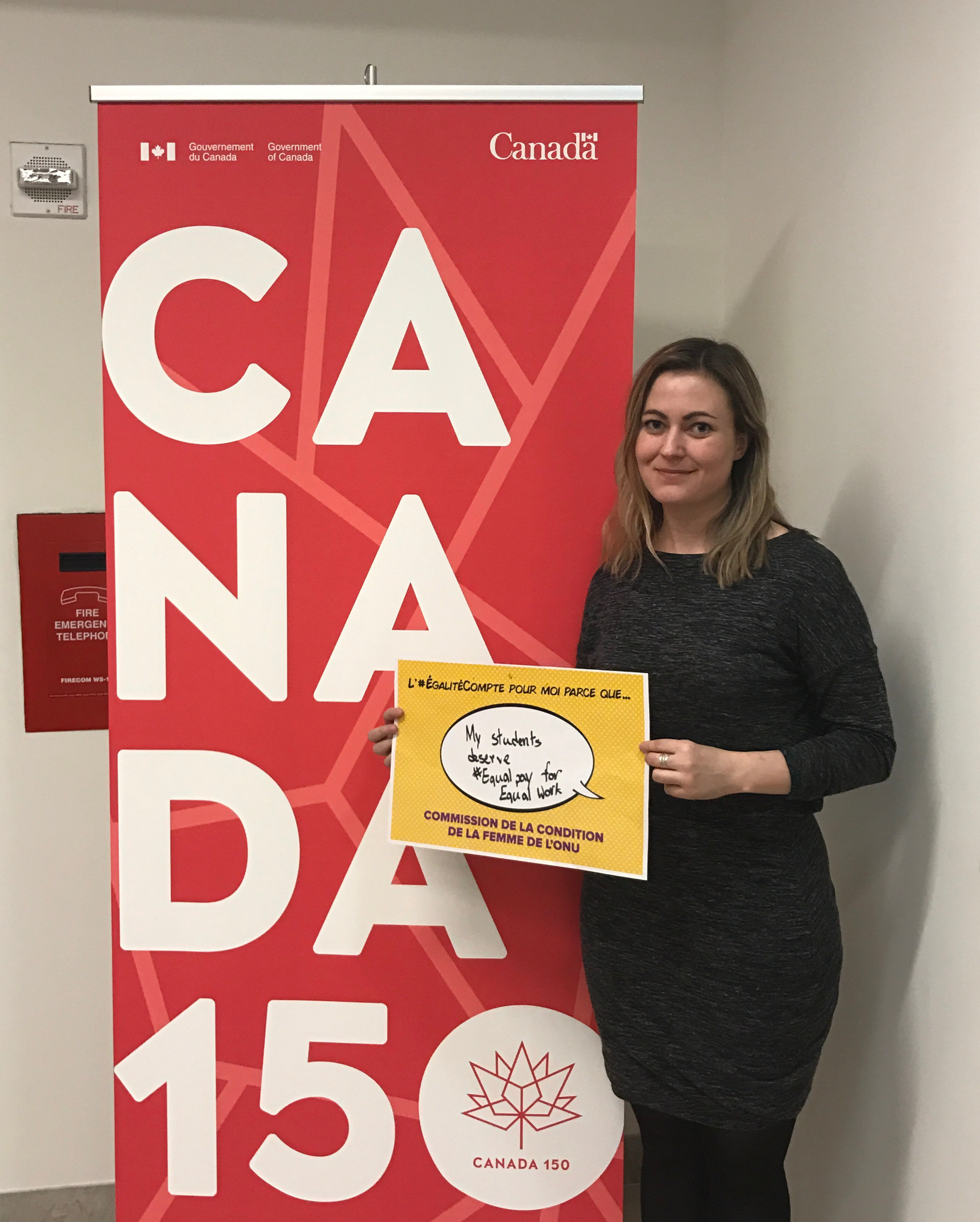
In honour of International Women’s Day, I did a slam poem workshop with my grade eight students. I told them the only restriction for the poem was they had to write about being a female. The resulting presentations were a revelation for me. Their poems, beautifully and honestly expressed, made me realize how few opportunities women, particularly young ones, have to voice their thoughts in a safe and inclusive environment.
This was a thought I carried with me as I left to attend the United Nations Commission on the Status of Women (UNCSW) in New York.
The UNCSW is the intergovernmental body devoted to protecting and advancing the rights of women worldwide. The commission brought together world leaders, as well as non-governmental organizations (NGO) from across the globe, each working for female empowerment in different ways.
Over the course of the week I had the opportunity to attend a variety of parallel events, panel discussions and workshops run by the NGOs working for women’s rights.
The week started with the NGO consultation which focused on the priority theme of Economic Empowerment for Women.
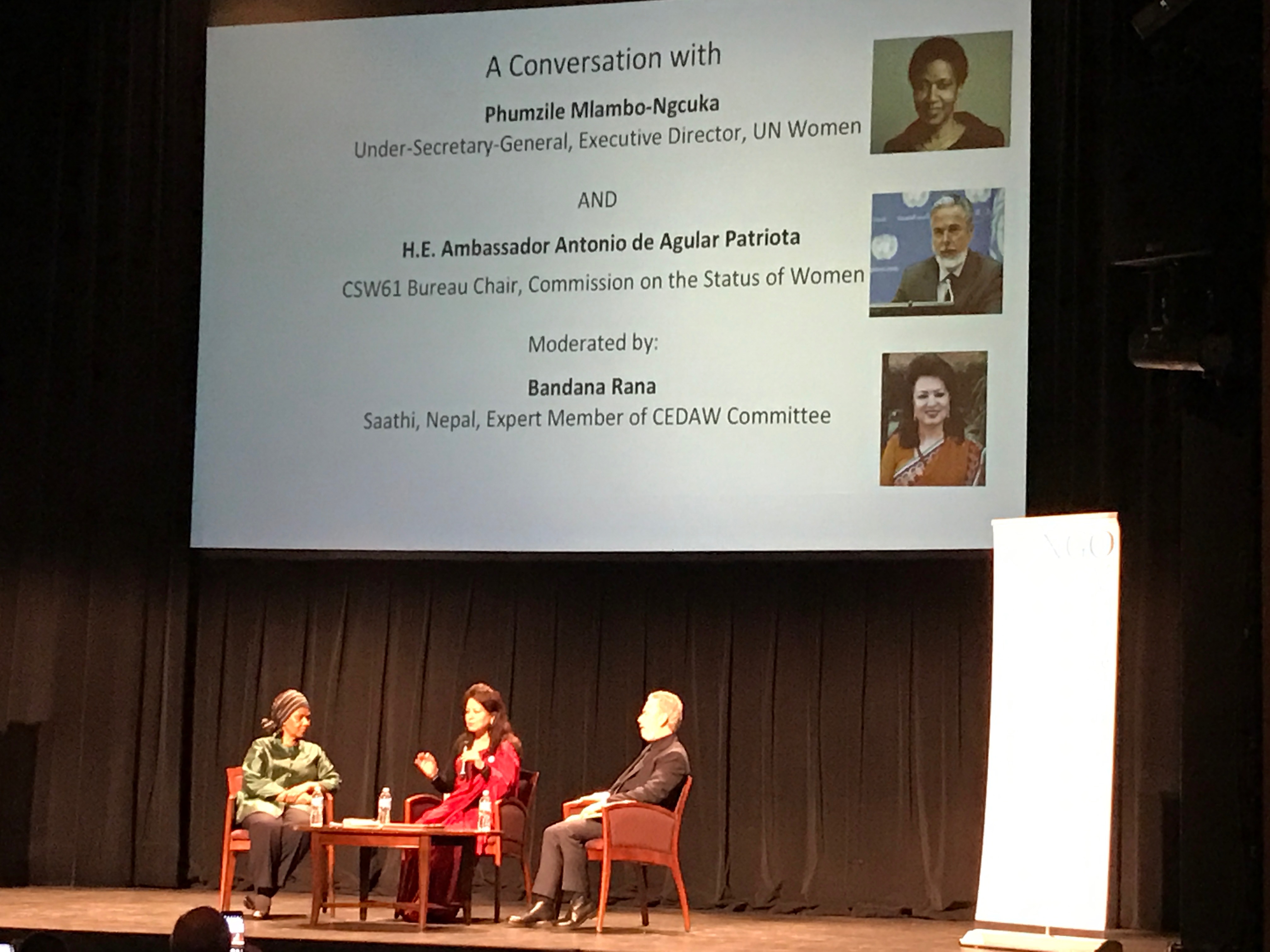
During the event, I was able to listen to a discussion between the Executive Director for UN women, Phumzile Mlambo-Ngcuka and the Chair for UNCSW, His Excellency Ambassador Antonio de Aguiar Patriota. They spoke about the need for allies from all different areas and concerns to come together and “sing from the same hymn sheet.” The day finished with a breathtaking performance by Canadian poet Rupi Kaur.
For me, one of the most enlightening parts of the week was being able to attend discussions centred around Missing and Murdered Indigenous Women. I had the opportunity to hear from organizations and representatives from Canada, the United States and South America. Hearing about the physical and sexual violence these women and their communities experience was a wakeup call—a reminder to do more to support those communities in need.
When asked what people outside the communities could do to help, the answer was to listen and to respond to the needs that are clearly expressed.
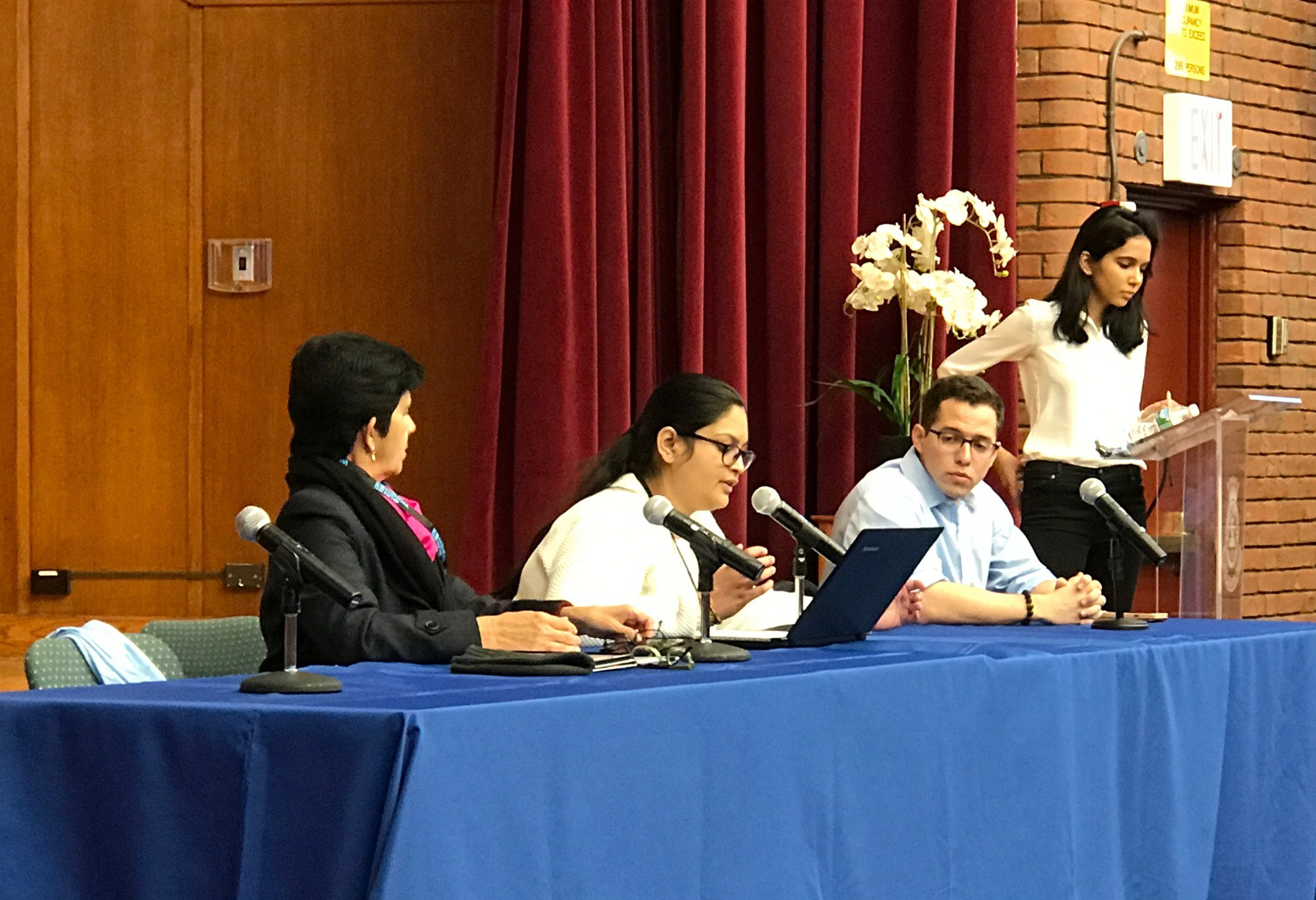
Something that will stay with me was getting to listen to a woman who had protested at Standing Rock. She challenged us to “find out who was on the land you now occupy, if they are not there, where are they?” I saw this as a reminder to be respectful and cognizant of the space we occupy.
On the last day, the Canadian Anglican Delegation had the opportunity to meet with a representative of the Permanent Canadian Mission to the United Nations.
During this meeting we were able to share with the representative what lessons learnt we considered the most important. We were also able to share what we felt the priorities should be for the Canadian Mission moving forward in negotiating the outcomes of the event.
Among other priorities, we were able to highlight the need for Canada to ratify the United Nations Declaration of the Rights of Indigenous Peoples as a step towards protecting Indigenous women and children. We also shared the need to listen to the voices in the Indigenous community and to incorporate them into the research and actions that are done around Missing and Murdered Indigenous Women.
The week provided some honest reflection on the work that still needs to be done to protect women globally. However, the organizations and government allies working towards achieving this equality, as well as the passion of the women I met, provide hope that it is an achievable goal.
Alicia Armstrong is the Youth Minister at St. Cuthbert’s Oakville and a teacher at St. Mildred’s-Lightbourn School in Oakville.
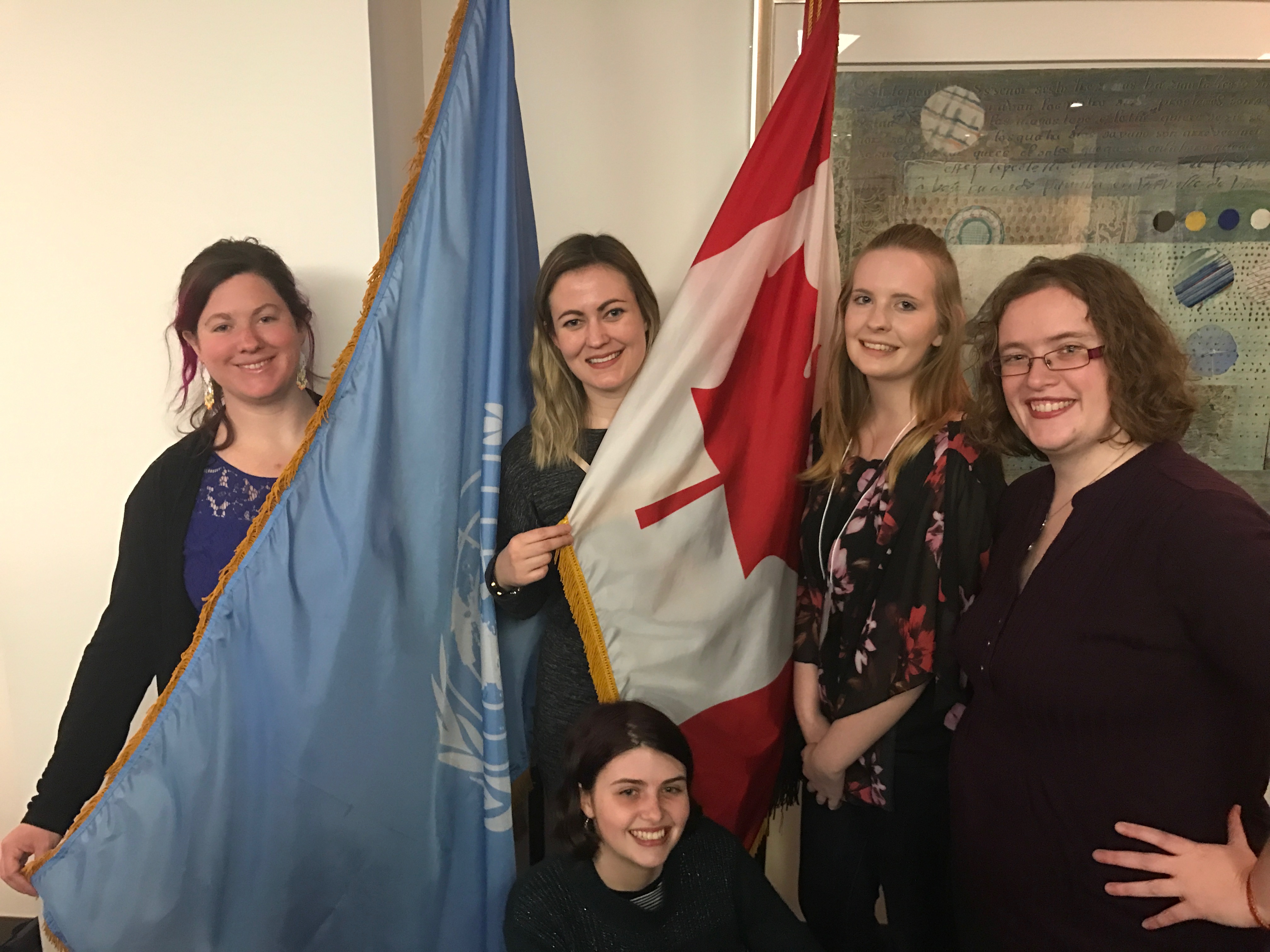
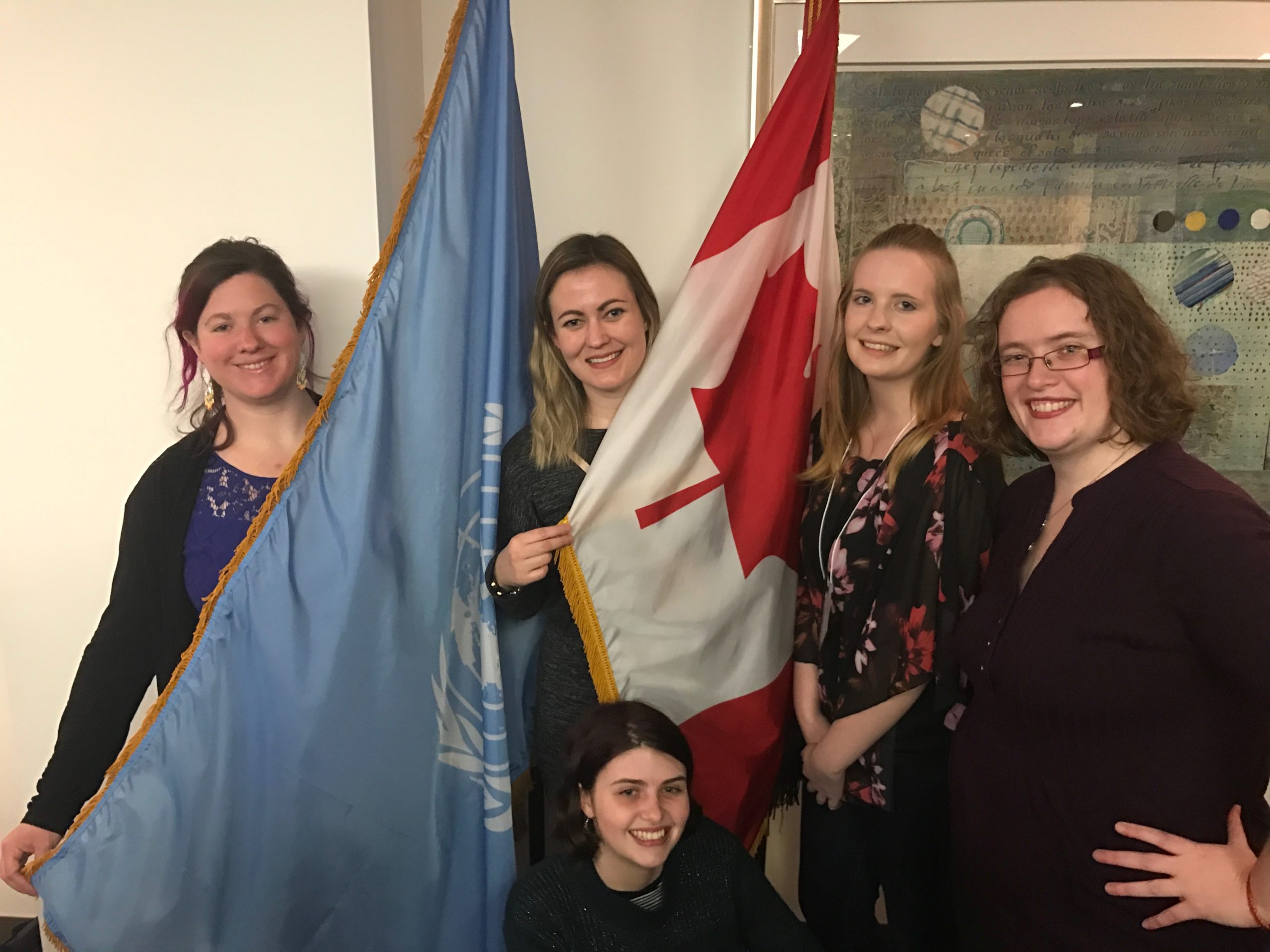
Disability Theology and it’s Promise for our Church